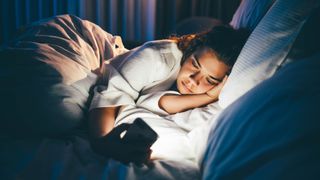From nottinghampost.com
Poor sleep and a bad sleep schedule can play a role in causing depression and a range of heart-related issues
Experts are advising people to maintain a regular sleep schedule as much as possible to reduce their risk of developing chronic illnesses. Poor sleep quality and an irregular body clock could contribute to depression and various heart problems.
As summer brings high temperatures and lighter evenings, achieving a good amount of sleep can be more challenging. Longer daylight hours can disrupt your body's circadian rhythm and suppress melatonin production.
This disruption can lead to irregular sleep patterns that can ultimately be harmful to your health. A large scale study in 2016 found a significant link between insomnia and an increased risk of depression.
In another systematic review, evidence showed that insomnia and depression often coexist. Researchers concluded that having one condition increases the likelihood of having the other.
Poor sleep linked depression and heart problems (Image: Getty)Several treatments can potentially help improve your sleep:
Cognitive behavioural therapy (CBT).
Relaxation techniques - such as deep breathing and visualisation.
Exercise.
Mind-body practices - such as yoga, tai chi, qigong, and meditation.
Avoiding stimulants, like caffeine, in the afternoon.
Experts theorise that sleep loss may cause cognitive and mood changes, impair emotional regulation and stability, and alter neural processes. They also suggest that a lack of sleep could induce a stress response and increase levels of inflammation in the body.
Inflammation can damage healthy cells, tissues, and organs, leading to internal scarring, tissue death, and DNA damage in previously healthy cells. If inflammatory cells linger too long, it can result in chronic inflammation, which can trigger heart disease, arthritis, Alzheimer's disease and even cancer.
Approximately 33% of adults fail to achieve the recommended seven hours of sleep each night. This sleep deprivation can adversely affect functions related to heart health as well.
Kathleen Drinan, DO, a cardiologist at the University of Chicago Medicine, explained: "We think the lack of sleep increases heart disease risks by forcing our bodies to rely on the sympathetic nervous system, often referred to as the 'fight or flight' nervous system."
"This leads to the release of more adrenaline and high cortisol levels, which leads to increased risks of heart disease." The British Heart Foundation suggests that six to eight hours per night is the amount of sleep associated with a healthy heart.
Further research also found that consistently getting less than seven hours of sleep per night and waking up too early or frequently during the night can increase an individual's risk of experiencing a stroke, heart attack, or myocardial infarction in the future.
Poor sleep has also been linked to years of poor cardiovascular health. If you are struggling with sleep and/or your mental health, book an appointment with your doctor as soon as possible.
https://www.nottinghampost.com/news/health/not-getting-enough-good-sleep-9376131



